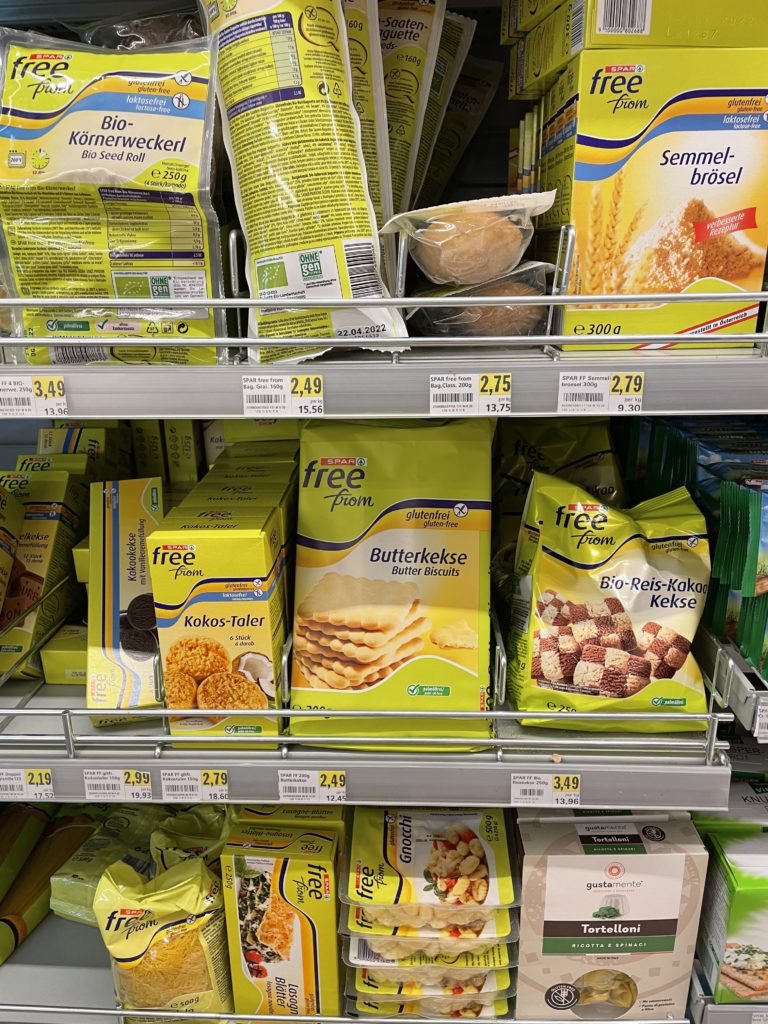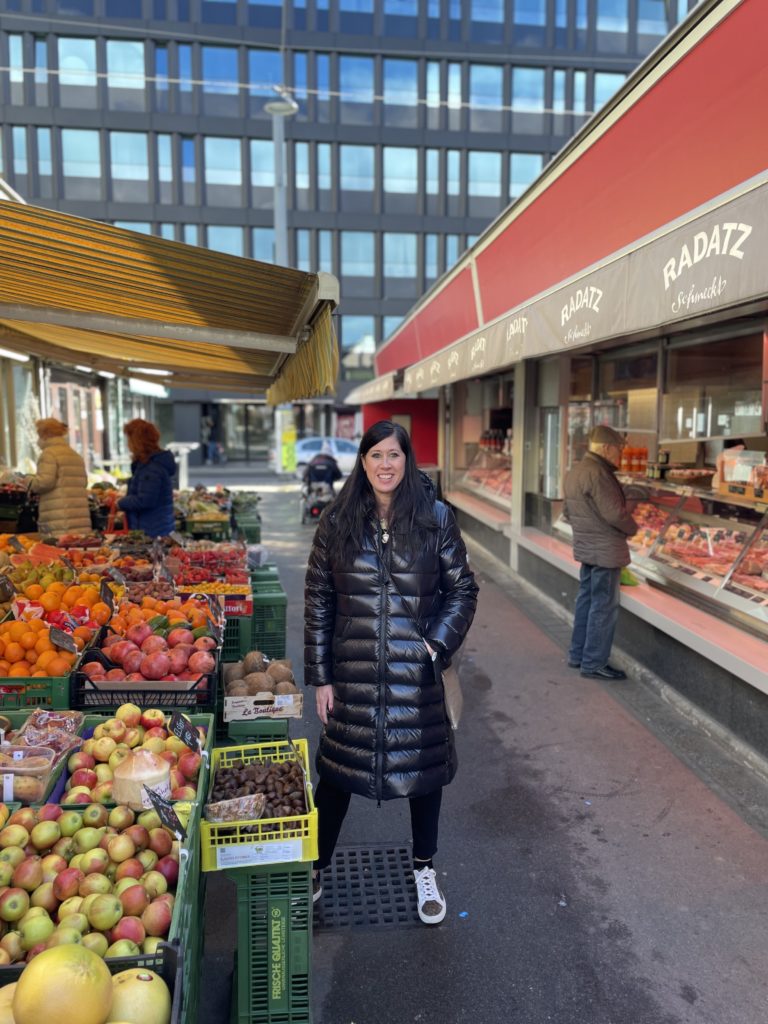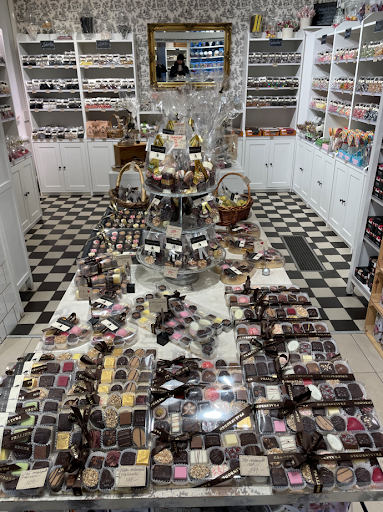I have celiac disease, which means I have a gluten allergy. If I eat food that contains gluten, I get sick. Moving to Vienna, Austria and spending extended lengths of time in Sweden for my Fulbright research means I have spent a lot of time staring at the shelves in supermarkets, trying to figure out ingredient labels in German and Swedish, and asking a LOT of questions about menu options in restaurants.
Going to the supermarket to get groceries is always an adventure for me – even when I am in the United States. Wandering up and down the aisles to see what is on sale or offered seasonally could serve as an entire morning or afternoon activity. I love to go to farmer’s markets and specialty shops like the butcher, fish market or cheese monger. Going to a gourmet grocery store is my museum.

I am not one who openly shares my dietary restrictions with others. I never want anyone to feel as though they need to adjust their eating habits or menu options to comport with what I can or cannot eat. I never go anywhere without gluten free snacks. Living and traveling in Europe has given me a whole new appreciation of the food labels in the United States. The Food Allergen Labeling and Consumer Protection Act, which is the law in the United States, requires that every product sold on American supermarket shelves tell consumers of even a possible contamination with ingredients that could cause an allergic reaction. This is not the case in Austria and Sweden. I had to teach myself what the German and Swedish words for gluten containing ingredients are and I had to ask a lot of questions at supermarkets and restaurants.
Every time I left my apartment to shop for food – I turned it into an adventure. I looked for health food shops and I found stores lined with shelves of gluten free products. In the mall near where I live, I found store that has a freezer full of gluten free pastries – even croissants! In Sweden, I found delicious snack bars to stock up on that I am hoarding as long as possible. I pushed myself to talk to the owners of small specialty markets for recommendations. I bought baking pans and measuring cups and spent hours searching for the ingredients to make an American Thanksgiving meal. I found a butcher who sold me the best turkey I have ever eaten.

I found gluten free bakeries in out of the way places – on little side streets and in far away neighborhoods. I found Viennese Apple Strudel (Apfelstrudel) and delicious Sacher-Torte. On St. Lucia Day in Sweden, a colleague brought me a gluten free saffron bun (Saffransbullar) for Fika. During one of my visits to Sweden, I found a candy store with salty Swedish licorice that I went to twice to buy more because it was so delicious.

Almost every day I connected with someone that had nothing to do with my research. I even received recommendations from the women at the nail salon I frequented on where to go for the best gluten free pizza in Vienna. By pushing myself and advocating for my needs, I found a community of people – in restaurants, shops, hotels and super markets who made me feel at right at home.
As the recipient of a Fulbright Schuman European Union Affairs Program grant, Shea Rhodes spent the 2021-2022 academic year conducting policy-oriented research on human trafficking with the Organization for Security and Cooperation in Europe in Vienna, Austria and the Ministry of Foreign Affairs in Stockholm, Sweden. Her research, titled, “Discouraging the Demand that Drives the Exploitation of Persons that Leads to Human Sex Trafficking and Commercial Sexual Exploitation,” looked at whether Austria and Sweden have successfully implemented a directive from the United Nations’ Palermo Protocol to Prevent, Suppress and Punish Trafficking in Persons Especially Women and Children. She is a graduate of Villanova Law.
Articles are written by Fulbright grantees and do not reflect the opinions of the Fulbright Commission, the grantees’ host institutions, or the U.S. Department of State.
